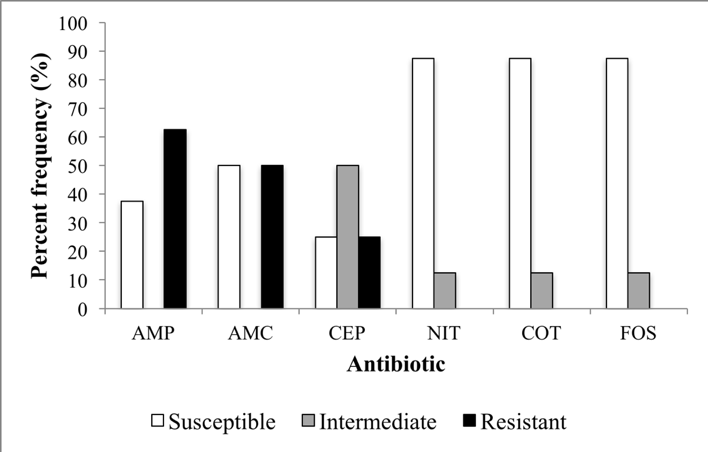VOLUME 11 (Supplement)

Philipp. Sci. Lett. 2018 11 (Supplement) 059-068
available online: July 13, 2018
*Corresponding author
Email Address: gmpenuliar@up.edu.ph
Date Received: November 28, 2017
Date Revised: March 19, 2018
Date Accepted: April 22, 2018
ARTICLE
Prevalence, antibiogram and virulence gene profiles of uropathogenic Escherichia coli from pregnant women with urinary tract infection
by Genevieve L. Serrano and Gil M. Penuliar*
1Institute of Biology, College of Science, University of the Philippines Diliman,
Quezon City 1101, Philippines
Quezon City 1101, Philippines
Urinary tract infection (UTI) is commonly caused by Escherichia coli and occurs when bacteria colonize the bladder. Pregnant women have a higher risk of contracting UTI, a situation which may lead to birth complications. UTI treatment is complicated by drug resistance which limits treatment options for pregnant women. The objectives of this study were to determine the prevalence, antibiogram and virulence gene profiles of uropathogenic E. coli (UPEC) among pregnant women visiting the outpatient department of a tertiary hospital in Metro Manila. Culture methods were utilized to determine significant bacteriuria and to isolate UPEC, while PCR was performed to confirm the presence of UPEC and other UTI-causing bacteria, and to detect the presence of virulence genes. Disk diffusion assay was done to determine the antibiogram profiles of the isolates. Twenty-one percent of the samples were positive for UTI, 42% of which were UPEC-positive. Sixty three percent of UPEC isolates were resistant to ampicillin, 50% to amoxicillin-clavulanate and 25% to cephalothin. Multidrug resistance phenotypes were observed and genes for P fimbriae, Type 1 fimbriae adhesion, and Dr II adhesin were detected from the UPEC isolates. The results confirmed the increase as well as high incidence of drug resistance among UPEC isolates, through antibiotic susceptibility tests (AST). It is recommended that AST be done prior to prescription of drugs for UTI and that fosfomycin be used as an alternative to the treatment of UTI in pregnant women.
© 2026 SciEnggJ
Philippine-American Academy of Science and Engineering